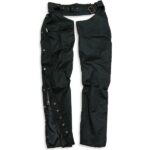You diligently apply moisturizer every morning and night, yet your skin still feels tight, parched, and possibly flaky or itchy. Why is your skin so dry even when you moisturize? This persistent dryness can be frustrating, but understanding the potential causes can help you find solutions for lasting relief. Let’s explore some common reasons why your moisturizer might not be working and how to achieve truly hydrated skin.
Could Your Moisturizer Be the Culprit?
Often, the ineffectiveness of a moisturizer stems from using the wrong product for your skin type. Lightweight lotions and moisturizers often contain high water content, meaning they lack the essential lipids (fats and oils) that effectively lock in moisture.
Dry skin thrives on richer creams rather than water-based gels or lotions. Effective options include Eucerin Original Healing Cream and CeraVe Moisturizing Cream. For persistently dry hands, a specialized hand cream like Eucerin Advanced Repair Hand Cream may be necessary.
When selecting a moisturizer, opt for “fragrance-free” options, as fragrances can irritate dry, sensitive skin. Avoid products labeled “unscented,” as they may contain masking chemicals that could also cause irritation.
For severely dry skin, ointments, although potentially greasy, offer superior hydration compared to creams. Consider applying ointments like petroleum jelly or Aquaphor Healing Ointment to the driest areas.
 Dry skin responds best to heavier creams rather than lotions or water-based gels.
Dry skin responds best to heavier creams rather than lotions or water-based gels.
The Importance of Exfoliation
If you neglect exfoliation, a buildup of dead skin cells can hinder your moisturizer’s absorption. Regularly removing these dead cells with a gentle chemical exfoliant might be the solution. Look for exfoliating face or body washes containing salicylic, glycolic, or lactic acid, and use them once or twice a week. This will help reveal fresh, healthy skin that can better absorb moisture.
Timing Your Moisturizing Routine
While there’s no truly wrong time to moisturize, applying it immediately after showering or bathing, while your skin is still slightly damp, is crucial. This helps trap moisture and maximize hydration.
Are Your Other Skincare Products Drying Your Skin?
While effective for treating wrinkles, over-the-counter retinol products and prescription retinoids like tretinoin can cause dryness and flaking by accelerating skin cell turnover. Start with a low-dose product and use it sparingly. Consult your dermatologist for personalized recommendations and guidance on application order.
Topical acne treatments can also contribute to dryness. Discuss optimal acne treatment strategies with your dermatologist to minimize dryness while addressing breakouts.
Lifestyle Habits and Dry Skin
Certain habits can unknowingly deplete your skin’s moisture. Long, hot showers strip the skin of its natural oils. Limit showers to under 10 minutes and use lukewarm water. Reduce showering frequency if you don’t perspire heavily.
Other drying habits include:
- Using harsh soaps instead of gentle cleansers
- Employing harsh toners or skincare products
- Wearing tight, abrasive clothing
- Smoking
- Swimming in chlorinated pools
Aging and Skin Dryness
After 40, sebum (oil) production decreases, contributing to dryness. Switching to a richer cream or ointment can better hydrate aging skin and minimize fine lines.
Underlying Health Conditions and Dry Skin
Skin conditions like eczema, contact dermatitis, and psoriasis often cause dryness, flaking, and peeling. Additionally, seemingly unrelated health issues like diabetes, hypothyroidism, lymphoma, and kidney failure can also lead to dry skin. Consult your doctor for appropriate diagnosis and treatment.
Medication-Induced Dry Skin
Numerous medications can cause dry, peeling skin as a side effect. Common culprits include Accutane, beta blockers, hormonal birth control, statins, diuretics, and chemotherapy drugs. A thicker moisturizer or ointment can offer some relief.
Nutritional Deficiencies and Skin Health
Persistent dryness can result from deficiencies in vitamin A, vitamin D, iron, niacin, or zinc – all essential for healthy skin. Consult your doctor about potential deficiencies and the need for supplements. Extreme calorie restriction, as seen in anorexia, also deprives the skin of necessary nutrients.
Environmental Factors and Dry Skin
Living in a dry climate or using forced-air heating or air conditioning can significantly contribute to dry skin. In addition to using a heavier moisturizer, consider using a humidifier to add moisture to the air.
Medically reviewed by Jennifer Wong, DO
Written by Jessica Brown

